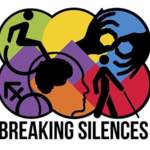Interviewer: Group Story Circle format
Interview Date: February 25, 2020
Location: Lonnie B. Harris Black Cultural Center, Oregon State University
Duration: 1:23:45
In this story circle, participants share personal experiences based on prompts related to care, identity, and advocacy. The conversation begins with the facilitator explaining the process and offering a few prompts. Participants then offer anecdotes about finding support in their special interests, having caring friends who embrace their interests without judgment, and acknowledging that needing assistance doesn't signify weakness.
The conversation then shifts to themes of inclusivity and understanding, with participants sharing instances where their disabilities were accommodated, and supportive friends recognized their struggles within an education system designed without their needs in mind. The conversation covers topics like struggles with depression, seeking accommodations, dealing with mental health stigma, and the challenges of accessing medical assistance due to financial constraints. Participants express the need for understanding and support from both peers and institutions, highlighting instances where their efforts to advocate for themselves led to positive outcomes.
Throughout the discussion, participants mention their experiences with mental health conditions, navigating the education system, and seeking validation for their identity and needs. Some express frustration with bureaucratic systems that fail to provide necessary accommodations, and they share their determination to fight for their rights despite the obstacles they face. The conversation also touches on the intersection of mental health, education, and financial barriers, emphasizing the importance of being heard and validated. They discuss how these issues impact their personal lives, educational experiences, and career opportunities.
Participants then reflect on their experiences with openness and honesty. They share common struggles while also acknowledging their own strengths and successes in advocating for themselves and embracing their identities. The conversation concludes with a facilitator changing the discussion format from being prompt-based to more spontaneous. As such, the participants discuss their weekend plans, favorite tv shows, activities, and movies.
Dublin Core
Title
Description
The conversation then shifts to themes of inclusivity and understanding, with participants sharing instances where their disabilities were accommodated, and supportive friends recognized their struggles within an education system designed without their needs in mind. The conversation covers topics like struggles with depression, seeking accommodations, dealing with mental health stigma, and the challenges of accessing medical assistance due to financial constraints. Participants express the need for understanding and support from both peers and institutions, highlighting instances where their efforts to advocate for themselves led to positive outcomes.
Throughout the discussion, participants mention their experiences with mental health conditions, navigating the education system, and seeking validation for their identity and needs. Some express frustration with bureaucratic systems that fail to provide necessary accommodations, and they share their determination to fight for their rights despite the obstacles they face. The conversation also touches on the intersection of mental health, education, and financial barriers, emphasizing the importance of being heard and validated. They discuss how these issues impact their personal lives, educational experiences, and career opportunities.
Participants then reflect on their experiences with openness and honesty. They share common struggles while also acknowledging their own strengths and successes in advocating for themselves and embracing their identities. The conversation concludes with a facilitator changing the discussion format from being prompt-based to more spontaneous. As such, the participants discuss their weekend plans, favorite tv shows, activities, and movies.

